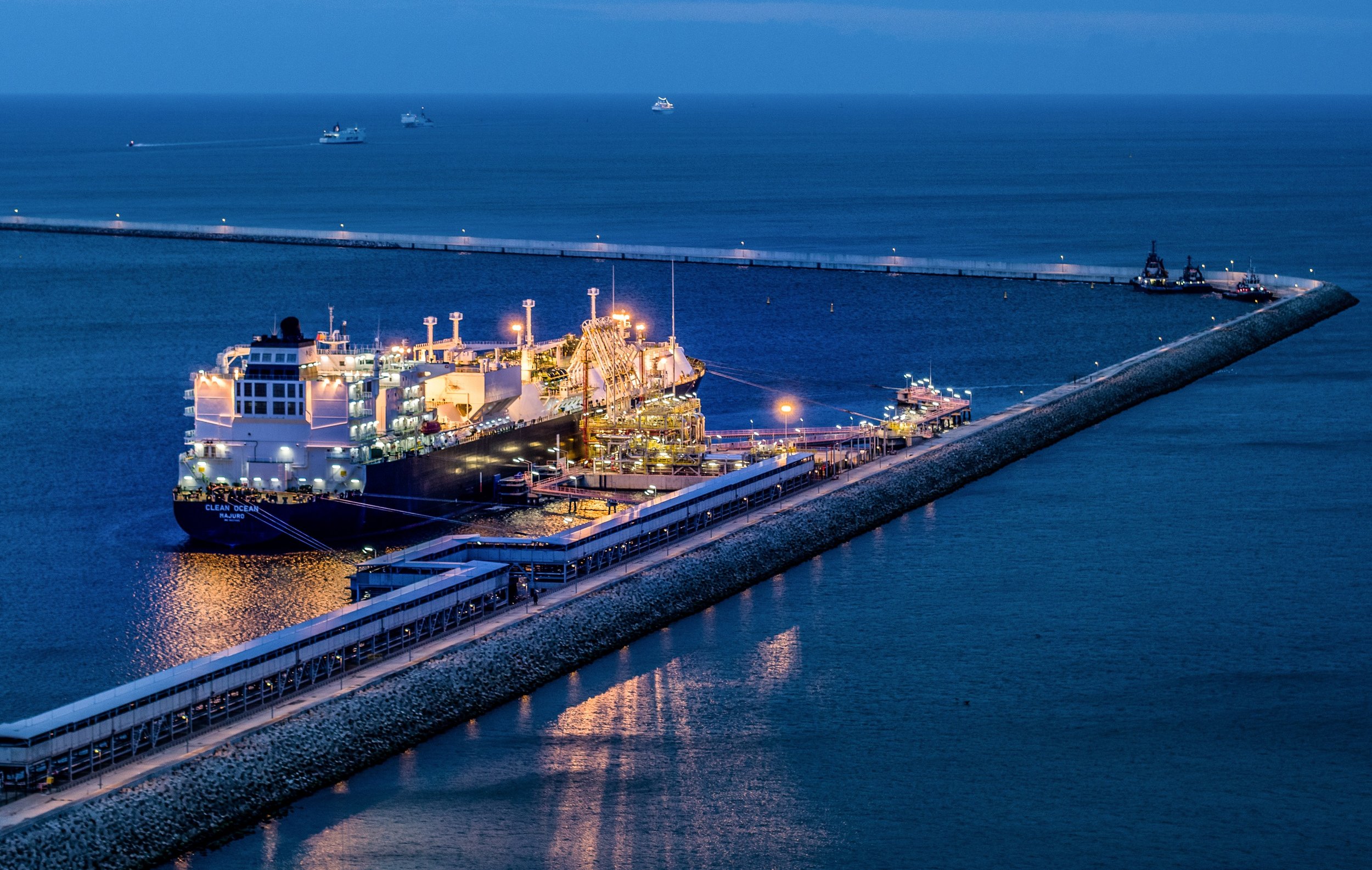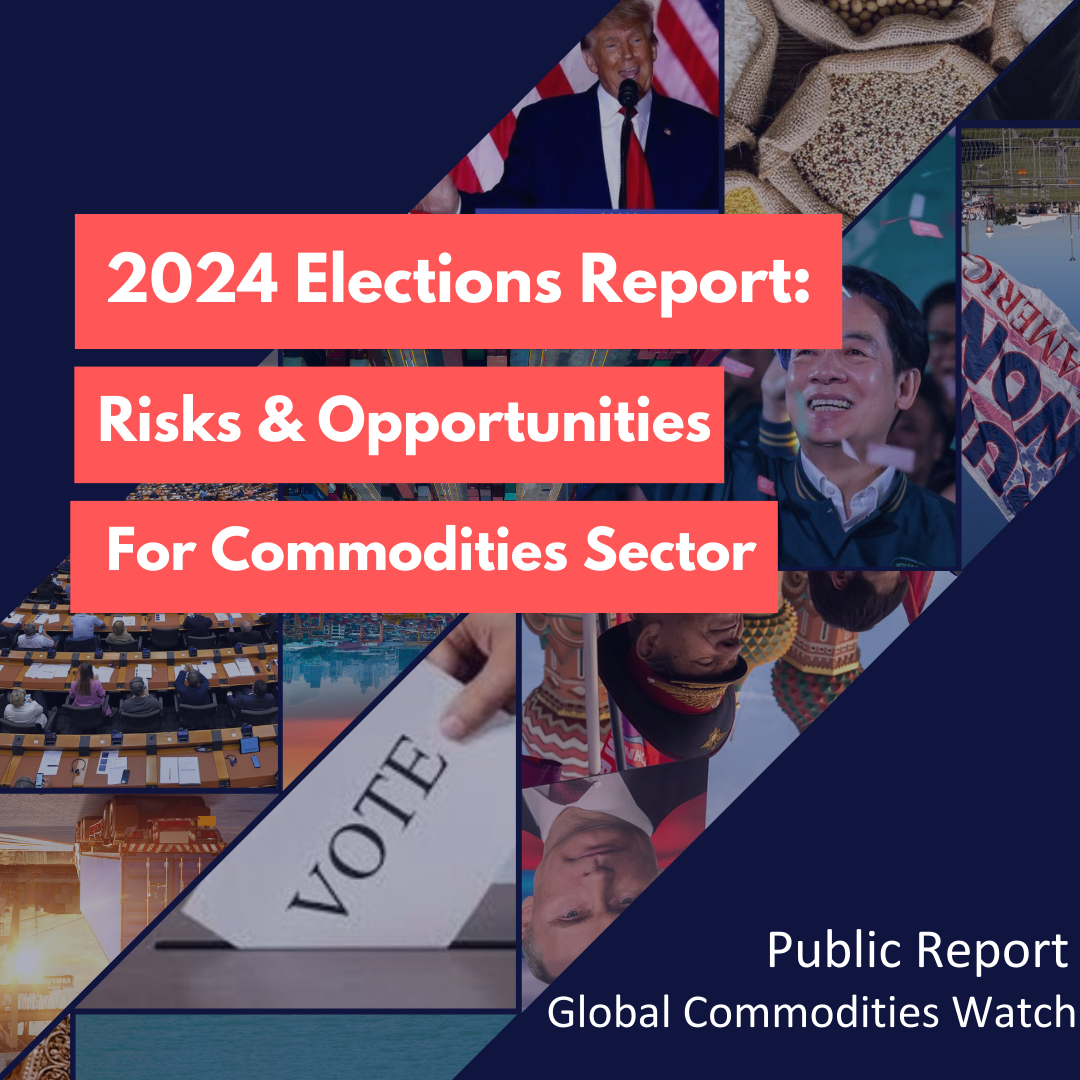Power and Protection - Smart Electricity Grids at the Crossroads of Technology and Geopolitics
In an age of evolving energy demands, climate concerns, and geopolitical tensions, the modernisation of power grids offers transformative potential. This report, authored collaboratively by the Global Commodities Desk and the Emergent Technologies Desk, provides actionable insights into the opportunities and challenges of smart grids, highlighting their pivotal role in building a sustainable, secure, and interconnected energy future. The geopolitical and economic dimensions of energy policy underscore the dual role of electrical and cyber systems, calling for robust protective measures against emerging threats. Discover how cutting-edge technologies and strategic policies are driving the energy revolution—read the full report to learn how smart grids are reshaping power systems and redefining energy security worldwide.
Small Modular Reactors Nuclear Renaissance?
In the era of climate urgency, increasing energy demands, and geopolitical uncertainties, Small Modular Reactors (SMRs) could redefine the energy landscape and provide viable alternatives to current energy sources. SMRs present a scalable, safer alternative to traditional nuclear power. This report from London Politica explores the potential of SMRs to revolutionise energy production, mitigate climate change, and enhance energy security. With uranium prices soaring and global interest in nuclear energy surging, SMRs are poised to play a critical role in the nuclear renaissance.
Our comprehensive analysis covers key regions, including the US, Europe, and China, examining their nuclear strategies, regulatory landscapes, and market dynamics. We also delve into the controversies surrounding uranium supply chains and the broader political and economic implications of nuclear power. Dive into our in-depth analysis of the future of SMRs and their global impact.
The LNG Freeze Limbo: How the US Export Pause is Reshaping Global Gas Dynamics
The Biden administration recently suspended granting permits for new liquified natural gas (LNG) imports, which will likely have major impacts on global energy security, especially for the European Union (EU). The move comes amidst growing protests against the Biden administration over its lacklustre plan to make a swift transition to green energy ecosystems. As per the White House, the decision aims to address domestic health concerns, such as increasing pollution near export facilities. However, the timing of the decision raises serious concerns, especially as the US’ European allies grapple with energy shortages since the Russian invasion of Ukraine 2 years ago.
The EU has been greatly dependent on LNG exports from the US in dealing with energy shortages following its decision to stop Russian exports. For instance, in the first half of 2023, the US exported more liquefied natural gas than any other country – 11.6 billion cubic feet a day. That same year, 60 per cent of US LNG exports were delivered to Europe and 46 per cent of European imports came from the US. This abrupt decision by President Biden, prioritising domestic concerns over international energy security and stability, is a long term challenge for US allies in Europe, as well as in Asia.
Despite the EU having fairly dealt with the energy shortages, a potentially long, harsh winter season later this year could further complicate the entire scenario, given the strong correlation between weather and gas prices. Winter conditions are, thus, likely to increase LNG demands, thereby increasing gas prices. Hence, shutting down gas exports to Europe is likely to accelerate geopolitical risks. This would imply diverting economic supply by the EU for Ukraine to deal with the impending energy crisis.
Many of the developing economies in Asia have traditionally been heavy consumers of coal and fossil fuels, primarily due to a lack of infrastructural capabilities to harness renewable sources of energy. Early LNG developments, especially in South East Asia were spurred on by the 1973 oil shock, which brought the need to diversify away from Middle Eastern oil for power generation. Consisting of many developing economies, countries in Asia wanted to rely on a stable and efficient partner to develop their energy ecosystems running on a fair share of LNG exports. Being the largest exporter of LNG in the world, the US was seen as “the reliable partner.” Hence, the recent announcement by the White House has been taken seriously in Asia, given that it might hinder the progress of capacity expansion projects in the region.
Moreover, one of the US’ strategic allies in the region, Japan, could be hit extremely hard by the recent development, given that it is the world’s second-largest purchaser of LNG, with a huge proportion of the imports coming from the United States. Several Japanese companies, especially JERA, have been foundation buyers of LNG export projects and this announcement is likely to hinder their business prospects in the present and the future. Moreover, the future implications of the pause are even more disastrous for the other allies of the US, especially smaller countries like the Philippines, which is currently undergoing energy shocks. The Philippines relies heavily on the electricity and natural gas acquired from the Malampaya gas field. This reserve is expected to run dry in 2027, causing an energy crisis. The nation must now choose between transitioning to renewable energy or continue to rely heavily on the exploration of conventional energy sources which would make them drift further apart from their commitments towards cutting down carbon emissions. The leadership in Manila initially looked to the United States to provide initial relief over its impending energy crisis by importing LNG reserves from the US. However, the latest White House decision will very well make the Philippines’ political leadership exhibit signs of perplexity and look for other alternatives as the Southeast Asian nation continues to grapple with an ongoing energy crisis which is likely to turn worse in the upcoming years.
While the decision might highlight the US’ decision to deal with environmental concerns and climate change issues, the abruptness of the decision is likely to raise serious doubts among the allies over Washington’s reliability to help them cope with the ongoing energy crisis, made worse by a sluggish global economy in the aftermath of the COVID-19 pandemic. The move is likely to lead its partners to export LNG from other countries, which have a higher profile of emitting carbon emissions than the US.
This may also prompt countries to rely heavily on the use of coal and fossil fuels, thereby reversing the trend of actively exploring cleaner energy alternatives. With the global community facing an incoming climate emergency, substantial hope was placed on developed, industrialised countries of the north to create a strong base for the developing economies of the global south to make a transition towards cleaner energy ecosystems.
The US, with one of the largest reserves and the largest exporter of LNG, was seen as the “responsible leader” to effect this transition and, at the same time, stand shoulder to shoulder with struggling economies to deal with the contemporary energy shortage predicament. With ongoing geopolitical crises, the perception of the “pause” being indicative of breaking commitments to international partners and allies, cannot be undermined, in a year that is likely to decide the fate, political will, and the “ability to lead home and abroad amidst challenges” of the incumbent US president.
Featured image by Maciej Margas: PGNiG archive, CC BY-SA 4.0, https://commons.wikimedia.org/w/index.php?curid=90448259
2024 Elections Report: Risks & Opportunities for Commodities Sector
In the ever-evolving landscape of global commodities, the year 2024 stands as a pivotal juncture marked by transformative elections across diverse regions. As nations prepare to cast their ballots, the outcomes hold the power to shape policies and strategies that will significantly influence energy, trade relations, and resource management worldwide.
This report encapsulates the intricate intersections between political shifts and their repercussions on the commodities sector. London Politica’s Global Commodities Watch has made a selection of the most significant countries, and analysed the potential impact of elections based on election programmes, past policies, and scenario planning.





